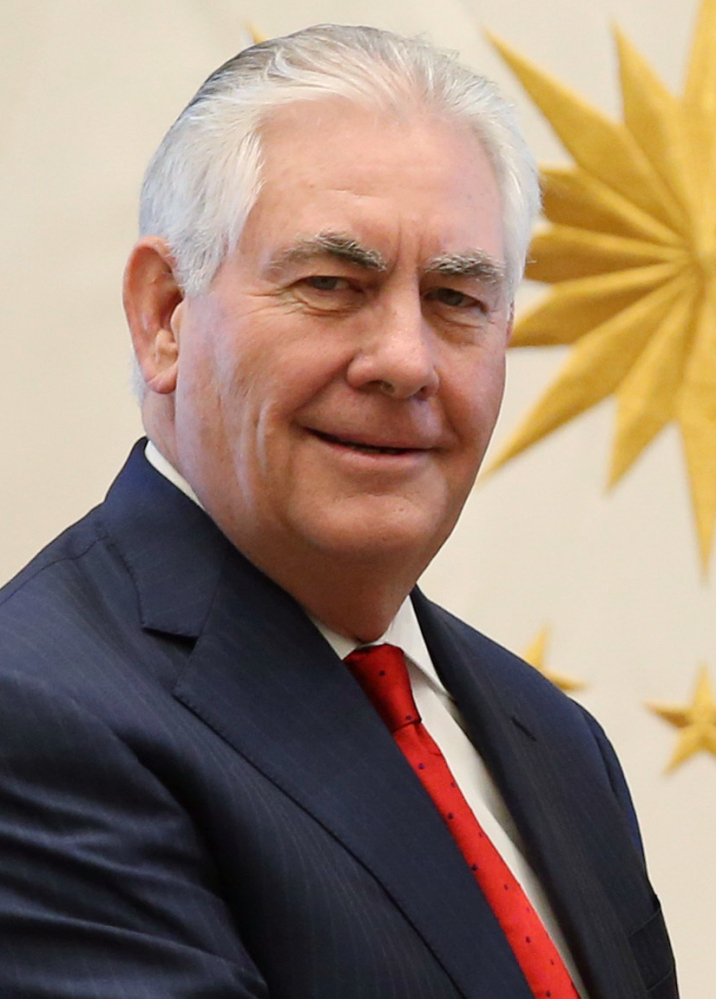BRUSSELS — Secretary of State Rex Tillerson ratcheted up pressure on NATO allies Friday to increase their defense spending, despite pushback from Germany’s top diplomat over President Trump’s determination to make members of the Western military alliance boost their military budgets.
Addressing a meeting of NATO’s 28 foreign ministers, Tillerson said he wanted alliance leaders to agree at a May summit to come up with concrete plans by the end of the year to meet budget guidelines. Friday’s conference – hastily moved up after Tillerson initially announced he would skip it so he could attend meetings between Trump and China’s leader next week – was held amid concerns about the U.S. commitment to NATO following Trump’s calls to increase spending.
“As President Trump has made clear, it is no longer sustainable for the U.S. to maintain a disproportionate share of NATO’s defense expenditures,” Tillerson told the foreign ministers. “Allies must increase defense spending.”
The effort has met with resistance from German Foreign Minister Sigmar Gabriel, who said the push from Washington was unrealistic and based on a mistaken interpretation of the spending targets, which are not binding. Germany is NATO’s largest economy after the United States, but it lags far behind in its defense spending. Twisting Berlin’s arm to increase its military expenditures is key to Trump’s effort to shift more of the burden for Europe’s defense to Washington’s NATO partners.
“More money doesn’t mean more security,” said Gabriel, who is a member of Germany’s center-left Social Democratic Party and has long been skeptical of defense spending increases. He said that meeting NATO spending guidelines would require Germany to pour an additional $37 billion a year into its defense budget, which he said was “totally unrealistic.” NATO leaders have pledged to increase annual defense outlays to 2 percent of their gross domestic products by 2024, but those shares are targets rather than requirements.
After Trump met with German Chancellor Angela Merkel in mid-March, he wrote on Twitter that “Germany owes vast sums of money to NATO & the United States must be paid more for the powerful, and very expensive, defense it provides to Germany!”
That approach misstated the way NATO works, since allies contribute military capabilities rather than actual money to the alliance.
Tillerson’s trip built on an ongoing pattern from the Trump administration: The president says something at odds with U.S. policy or existing commitments, then leaves it to subordinates to reassure allies.
Send questions/comments to the editors.



Success. Please wait for the page to reload. If the page does not reload within 5 seconds, please refresh the page.
Enter your email and password to access comments.
Hi, to comment on stories you must . This profile is in addition to your subscription and website login.
Already have a commenting profile? .
Invalid username/password.
Please check your email to confirm and complete your registration.
Only subscribers are eligible to post comments. Please subscribe or login first for digital access. Here’s why.
Use the form below to reset your password. When you've submitted your account email, we will send an email with a reset code.